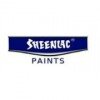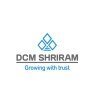Filter interviews by
Seya Industries Interview Questions, Process, and Tips
Seya Industries Interview Experiences
3 interviews found
I applied via Naukri.com and was interviewed in Mar 2023. There were 3 interview rounds.

(2 Questions)
- Q1. Difference between heat exchanger and condenser .
- Ans.
Heat exchangers transfer heat between two fluids without mixing them, while condensers convert vapor into liquid by removing heat.
Heat exchangers transfer heat between two fluids without mixing them
Condensers convert vapor into liquid by removing heat
Heat exchangers are used in HVAC systems, refrigeration units, and chemical processing plants
Condensers are commonly found in air conditioning units, distillation columns,
- Q2. Type of fire .and handing chemical
- Ans.
There are different types of fires classified based on the materials involved, and chemicals should be handled carefully to prevent accidents.
Types of fires include Class A (ordinary combustibles), Class B (flammable liquids), Class C (electrical fires), Class D (flammable metals), and Class K (cooking oils and fats)
Chemicals should be stored properly in labeled containers and handled according to safety data sheets
Pro...
(1 Question)
- Q1. Family background and pervious company leave reason
- Ans. Father Ouccption and brother sister.problem management system very poor
Interview Preparation Tips
Junior Production Officer Interview Questions asked at other Companies
I applied via Approached by Company and was interviewed before Oct 2021. There were 2 interview rounds.

(2 Questions)
- Q1. Besic technical Questions
- Q2. Diffranc between heat exchanger and consider. Type of fire Sefty relelted
- Ans.
Heat exchangers transfer heat between two fluids while condensers convert vapor to liquid.
Heat exchangers are used to transfer heat between two fluids without mixing them.
Condensers are used to convert vapor to liquid by removing heat from the vapor.
Both heat exchangers and condensers are important in industrial processes for energy efficiency and safety.
Safety measures include pressure relief valves, temperature senso...
Interview Preparation Tips
Junior Production Officer Interview Questions asked at other Companies
I applied via Walk-in and was interviewed before Dec 2020. There were 3 interview rounds.
Interview Questionnaire
2 Questions
- Q1. WHAT IS DIFFERENCE BETWEEN COOLER AND CONDESER
- Ans.
A cooler is a device used to lower the temperature of a substance, while a condenser is a device used to convert a gas or vapor into a liquid state.
Cooler is used to cool down a substance, while a condenser is used to convert a gas or vapor into a liquid state.
Cooler typically operates at a higher temperature range compared to a condenser.
Cooler is commonly used in refrigeration systems, air conditioning units, and hea...
- Q2. Asked about past company experience
Interview Preparation Tips
Junior Engineer Production Interview Questions asked at other Companies
Jobs at Seya Industries
Interview questions from similar companies

I applied via Referral and was interviewed before Apr 2020. There was 1 interview round.
Interview Questionnaire
2 Questions
- Q1. What is sales
- Ans.
Sales is the process of persuading a potential customer to purchase a product or service.
Sales involves identifying potential customers and their needs
Salespeople use various techniques to convince customers to buy
Sales requires building relationships with customers to encourage repeat business
Sales can involve both face-to-face interactions and online transactions
Examples of sales include selling cars, insurance, and
- Q2. Some calculations
Interview Preparation Tips

I applied via Job Fair and was interviewed before Jun 2021. There were 3 interview rounds.

(1 Question)
- Q1. HAC Classification, Basics of Safety
(1 Question)
- Q1. Incident investigation, Basics of Safety, Leadership skills
Interview Preparation Tips

I applied via Naukri.com and was interviewed before May 2020. There were 5 interview rounds.
Interview Questionnaire
1 Question
- Q1. Market segments, Driving policies and 7P's
Interview Preparation Tips

Interview Questionnaire
2 Questions
- Q1. Tell me about yourself
- Q2. Why we should hire you

I applied via Company Website and was interviewed before Jan 2021. There were 2 interview rounds.
Interview Questionnaire
2 Questions
- Q1. Seles improvements, retail relationships building.
- Q2. Salary discussion, job profile, role ,work preference
Interview Preparation Tips

(2 Questions)
- Q1. How do we do the administration of Incentive compensation process
- Ans.
The administration of Incentive compensation process involves setting up guidelines, calculating payouts, and ensuring accuracy.
Establish clear guidelines for incentive compensation based on performance metrics
Calculate payouts accurately using a predetermined formula or system
Monitor and track performance data to determine eligibility for incentives
Communicate incentive compensation details to employees transparently
R...
- Q2. I explained the work flow in the IC process.
(2 Questions)
- Q1. Situational awareness related questions
- Q2. Answered it and solved some puzzles
Interview Preparation Tips

I applied via Naukri.com and was interviewed in Aug 2022. There was 1 interview round.
(2 Questions)
- Q1. Basic information of your knowledge
- Q2. Your technical knowledge
Seya Industries Interview FAQs
Tell us how to improve this page.
Interview Questions for Popular Designations
Interview Questions from Similar Companies
Seya Industries Reviews and Ratings
based on 28 reviews
Rating in categories
|
Production Engineer
15
salaries
| ₹1.8 L/yr - ₹2.8 L/yr |
|
Project Engineer
8
salaries
| ₹2.8 L/yr - ₹4.5 L/yr |
|
Production Officer
7
salaries
| ₹2.1 L/yr - ₹4 L/yr |
|
Junior Engineer Production
6
salaries
| ₹2 L/yr - ₹2.4 L/yr |
|
Junior Production Officer
5
salaries
| ₹2.2 L/yr - ₹3.4 L/yr |

Asian Paints

Berger Paints

Pidilite Industries

SRF
- Home >
- Interviews >
- Seya Industries Interview Questions
















